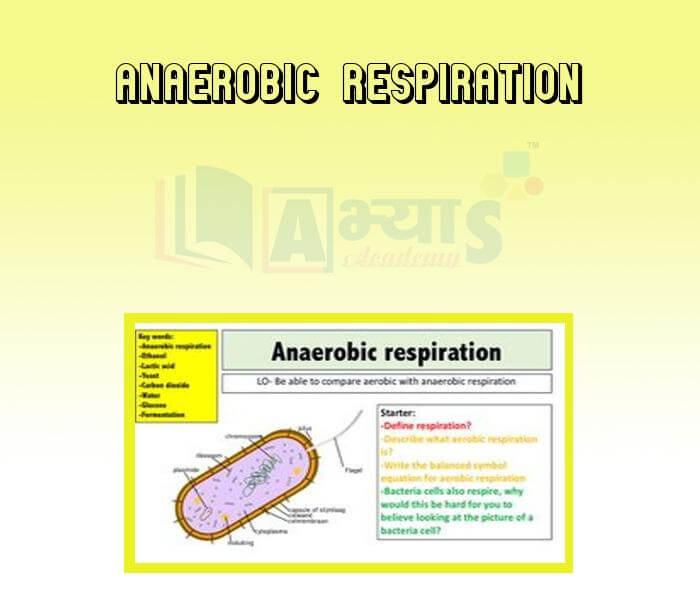Anaerobic Respiration







Anaerobic Respiration
Based on availability of oxygen, cellular respiration may be divided into two types: anaerobic and aerobic respiration. Anaerobic respiration means in the absence of oxygen; while aerobic means in the presence of oxygen.
Anaerobic Respiration: The process of cellular respiration that takes place in the absence of oxygen is called anaerobic respiration. So, we can say that partial oxidation of food in the absence of oxygen, resulting in the release of some amount of energy, is called anaerobic respiration.
The respiration carried in the absence of oxygen is called | |||
| Right Option : B | |||
| View Explanation |
Anaerobic respiration is also termed as
| |||
| Right Option : A | |||
| View Explanation |
Anaerobic respiration is also termed as _______________ | |||
| Right Option : A | |||
| View Explanation | |||
Students / Parents Reviews [10]
Abhyas Methodology is very good. It is based on according to student and each child manages accordingly to its properly. Methodology has improved the abilities of students to shine them in future.

Manish Kumar
10thMy experience with Abhyas academy is very good. I did not think that my every subject coming here will be so strong. The main thing is that the online tests had made me learn here more things.

Hiya Gupta
8thBeing a parent, I saw my daughter improvement in her studies by seeing a good result in all day to day compititive exam TMO, NSO, IEO etc and as well as studies. I have got a fruitful result from my daughter.

Prisha Gupta
8thOne of the best institutes to develope a child interest in studies.Provides SST and English knowledge also unlike other institutes. Teachers are co operative and friendly online tests andPPT develope practical knowledge also.

Aman Kumar Shrivastava
10thAbout Abhyas metholodology the teachers are very nice and hardworking toward students.The Centre Head Mrs Anu Sethi is also a brilliant teacher.Abhyas has taught me how to overcome problems and has always taken my doubts and suppoeted me.

Shreya Shrivastava
8thA marvelous experience with Abhyas. I am glad to share that my ward has achieved more than enough at the Ambala ABHYAS centre. Years have passed on and more and more he has gained. May the centre flourish and develop day by day by the grace of God.

Archit Segal
7thIt has a great methodology. Students here can get analysis to their test quickly.We can learn easily through PPTs and the testing methods are good. We know that where we have to practice

Barkha Arora
10thIt was a good experience with Abhyas Academy. I even faced problems in starting but slowly and steadily overcomed. Especially reasoning classes helped me a lot.

Cheshta
10thMy experience was very good with Abhyas academy. I am studying here from 6th class and I am satisfied by its results in my life. I improved a lot here ahead of school syllabus.

Ayan Ghosh
8thMy experience with Abhyas is very good. I have learnt many things here like vedic maths and reasoning also. Teachers here first take our doubts and then there are assignments to verify our weak points.
